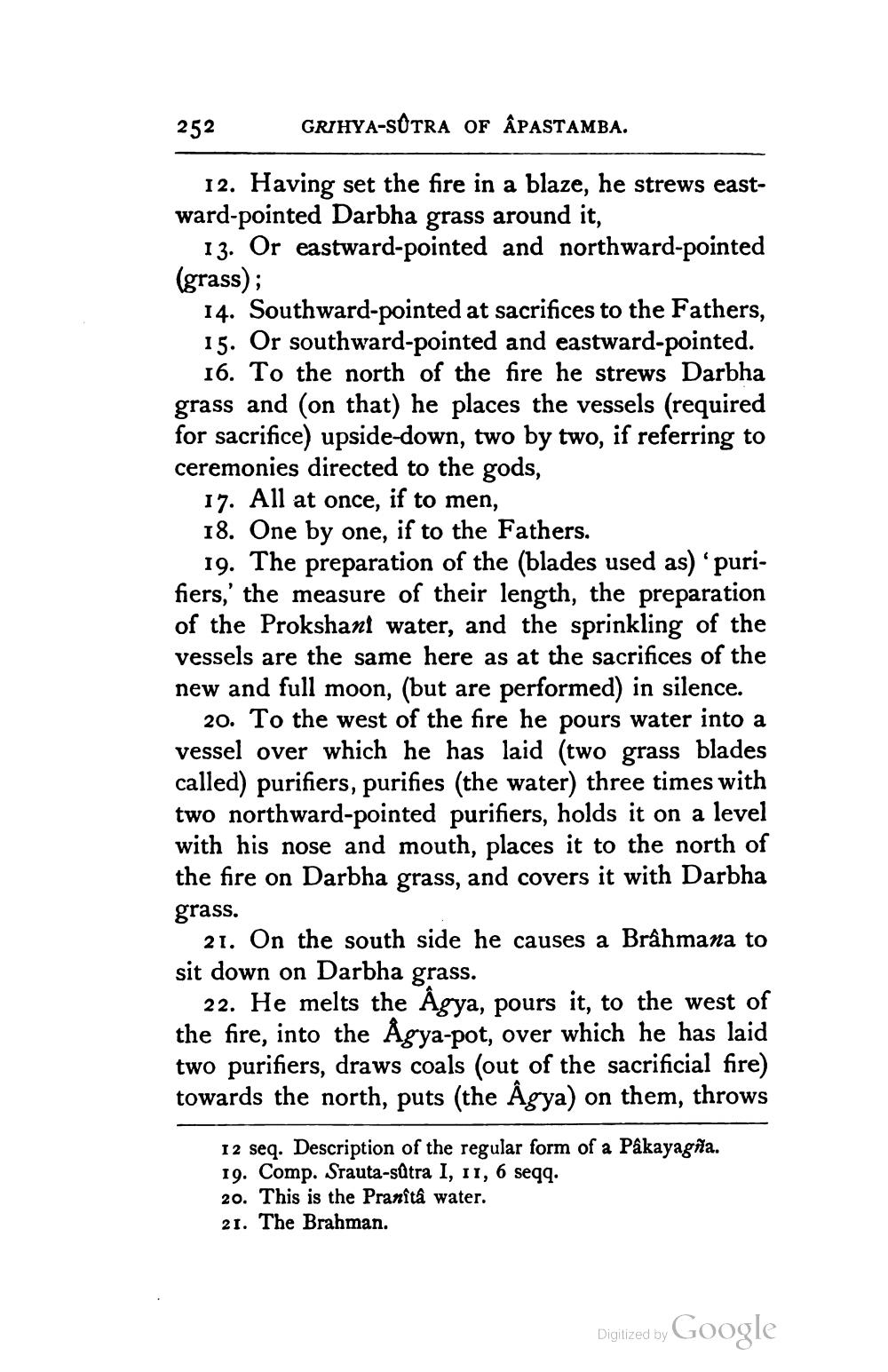________________
252
GRIHYA-SOTRA OF ÂPASTAMBA.
12. Having set the fire in a blaze, he strews eastward-pointed Darbha grass around it,
13. Or eastward-pointed and northward-pointed (grass);
14. Southward-pointed at sacrifices to the Fathers, 15. Or southward-pointed and eastward-pointed.
16. To the north of the fire he strews Darbha grass and (on that) he places the vessels (required for sacrifice) upside-down, two by two, if referring to ceremonies directed to the gods,
17. All at once, if to men, 18. One by one, if to the Fathers.
19. The preparation of the (blades used as) 'purifiers,' the measure of their length, the preparation of the Prokshant water, and the sprinkling of the vessels are the same here as at the sacrifices of the new and full moon, (but are performed) in silence.
20. To the west of the fire he pours water into a vessel over which he has laid (two grass blades called) purifiers, purifies (the water) three times with two northward-pointed purifiers, holds it on a level with his nose and mouth, places it to the north of the fire on Darbha grass, and covers it with Darbha grass.
21. On the south side he causes a Brâhmana to sit down on Darbha grass.
22. He melts the Agya, pours it, to the west of the fire, into the Ågya-pot, over which he has laid two purifiers, draws coals (out of the sacrificial fire) towards the north, puts (the Agya) on them, throws
1 2 seq. Description of the regular form of a Pâkayagfa. 19. Comp. Srauta-sūtra I, 11, 6 seqq. 20. This is the Pranitâ water. 21. The Brahman.
Digitized by Google




